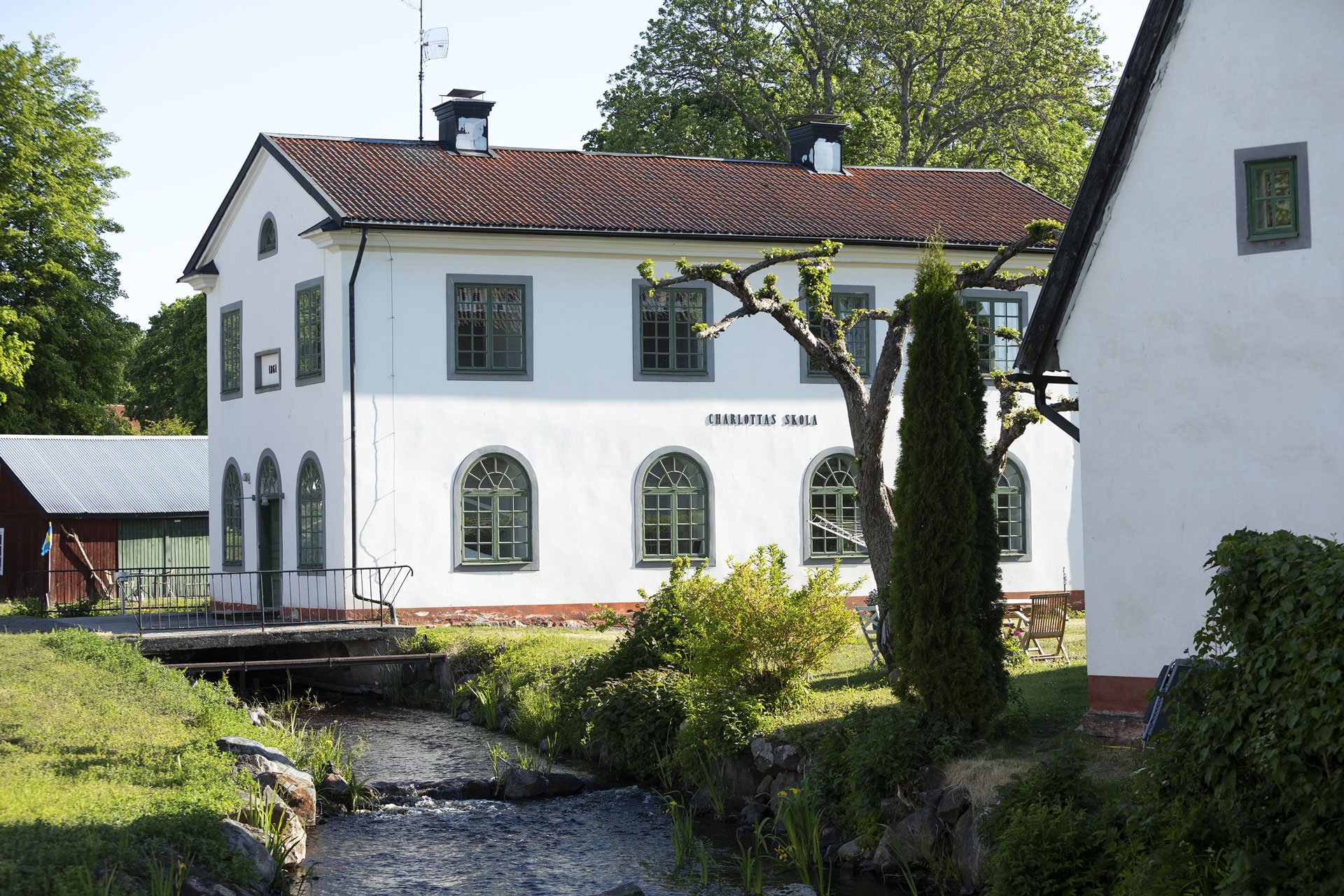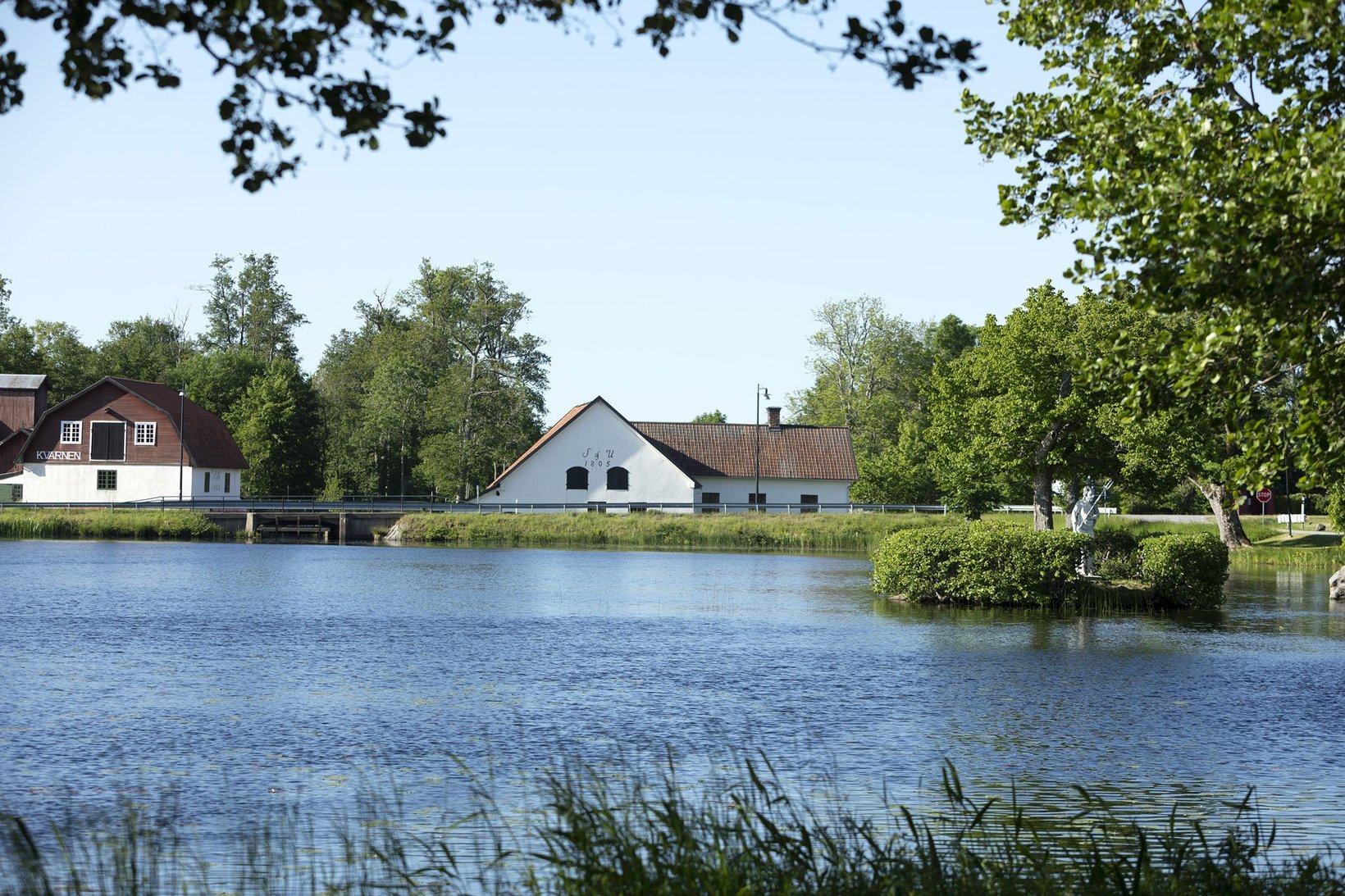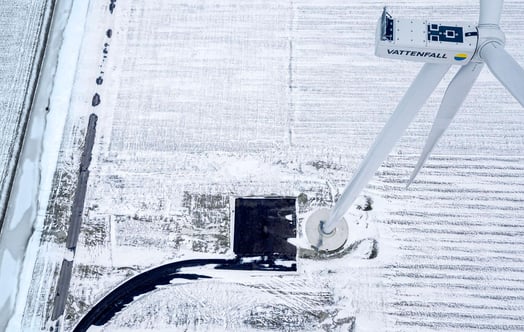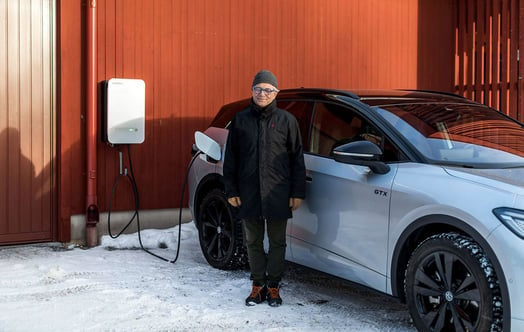In the former milling community of Forsmark on Sweden’s east coast, unemployment is low, and the economy is flourishing in a way that is perhaps unexpected outside Sweden’s major cities. One reason for this is the local nuclear power plant, which is well-liked by local residents.

It’s just after 2 pm on a typical Thursday afternoon, and as Susanne Falk speaks, you can hear the muffled tinkling of cutlery as staff at Forsmark’s Värdshus restaurant tidy up after the lunchtime rush. Falk has been running the restaurant and conference facility since late 1997, when she and her husband took over from his parents.
“The Forsmark plant has been incredibly important for us,” she says. “Probably 75 per cent of our business is related to it in one way or another. Without the power plant, we definitely wouldn’t even have been able to open every day of the week.”
Positive attitude from the start
The Falk’s involvement with the restaurant began in earnest at the end of the 90s, but their connection to the area goes deeper and is more far-reaching than that. Susanne moved here as a girl when her father worked on nuclear power at Vattenfall. It was also at that time that the power plant first began to be built.
“Even though there were protests at the time – ‘Nuclear power, no thanks!’ signs for example – the general attitude was very positive even then.
Margareta Widén-Berggren knows the situation well having been involved in the establishment of the power plant for 30 years and serving as a municipal councillor in Östhammar for more than 20 years, and also chairing the joint organisation of nuclear municipalities, she has seen how attitudes towards the power station have evolved over the years.
“Demonstrations before and during the construction [of the plant] were never here – they were elsewhere in Sweden. I’ve never felt that opposition was particularly strong in the local area. I think that’s because the power plant has been so important to the life of the town; even if you don’t work there, everyone knows someone who does – or who worked on the construction.”

Sign up for our newsletter THE EDIT
THE EDIT is Vattenfall's new monthly newsletter. Each issue highlights a new burning issue from the world of sustainable energy and fossil freedom.
Important part of the community
Acceptance of the power plant has continued to play a key role in the local community. Forsmark is an important part of the area, which is located just northeast of Uppsala, north of Stockholm, and helps Forsmark, Östhammar and other surrounding towns flourish in a way that areas outside Sweden’s major cities tend not to. Unemployment is low, and in addition to the power plant, a number of large companies and authorities also operate in the area.
“There are several reasons why attitudes towards the power plant are so positive,” says Fredrik Jansson, Principal of Vattenfall College in Forsmark.
“It’s a major employer that has a considerable impact on the local economy. Furthermore, Vattenfall does a lot for the local community – it sponsors sports clubs and supports the college where I work.”

Offers unique education
Vattenfall College offers three- and four-year courses specialising in technology – for example, reactor technology – that are unique to the college and focused on nuclear power.
“We have students from all over the country and they want to come here because they know that there are great chances of getting a job,” says Jansson. “The fact that our college has such a broad reach, and that we have such a large geographical spread among our students, is also good for the municipality – people moving here generates income.”
Jansson has taken students on a visit to the power plant and specifically highlights the openness and willingness to communicate as reasons for the public’s positive attitude, which also characterised the interaction and co-operation with municipal politics.
Openness important factor
Margareta Widén-Berggren agrees and says that she and fellow residents have always felt well informed and involved when it comes to the plans for the plant.
“For me, a key reason for the acceptance [of the plant] has been openness and co-determination,” says Widén-Berggren. “There’s always been a sense of security among those of us who live near the plant that we know what’s going on. We’ve seen exercises that Forsmark has done, we have a safety committee with public meetings. So we’ve always been involved and always felt informed.”
When the Swedish Nuclear Fuel and Waste Management Company (SKB) was granted permission to build a nuclear fuel repository here just before the end of last year, it was no surprise to Jansson, Widén Berggren or Falk. Quite the opposite.
“I entirely understand why you’d locate a waste storage facility here,” says Falk. “It makes sense to have it in a place where acceptance is already high.”
Forsmark nuclear power plant
Forsmark's nuclear power plant is located by the Baltic Sea in the municipality of Östhammar (22,500 inhabitants), northeast of Sweden's fourth largest city, Uppsala. The three reactors were commissioned between 1980 and 1985. The total output is 3300 MW.
Public support for the nuclear power plant and surrounding operations is very high.
In 2022 analysis company Novus conducted a survey among Östhammar municipality residents to measure support for the Swedish government's approved plans for a nuclear fuel final repository in Forsmark. 84 percent said they were positive to the plans.




